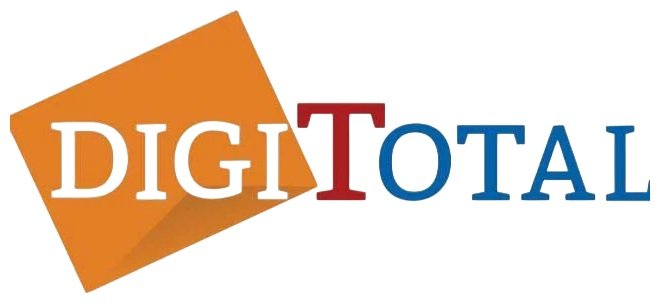AI is Transforming Search, and AIO is Redefining Visibility
Search is evolving faster than ever. What was once about optimizing your website for search engine rankings is now being upended by the rise of AI and AI-powered search engines.
This transformation is marking the dawn of a new era in digital marketing, where the spotlight is shifting from traditional SEO to AI-driven SEO. This evolution – often called Artificial Intelligence Optimisation (AIO) – focuses on how AI systems like ChatGPT, Gemini, and Google’s AI tools interpret, rank, and present information.
If your brand isn’t showing up in AI-powered search results, you’re missing out on a seismic shift in how people discover information online. This change is as significant as the birth of Google itself.
From Search Engines to Search Engines that Answer
For decades, search engines like Google were the primary way people found information. Businesses honed their strategies around search algorithms, keywords, and content optimization to ensure their websites ranked well and matched user intent.
But that model is evolving. Modern users don’t just type keywords into a search bar anymore—they ask questions. And in response, AI-powered search engines are providing direct answers instead of a list of links to browse through.
The numbers are telling:
- 50% of Gen Z and Millennials now turn to AI assistants instead of traditional search engines to begin their research (HubSpot, 2024).
- 58% of consumers use generative AI to research products or services (AI Magazine, 2025).
- In just two years, 89% of B2B buyers adopted generative AI (Forrester, 2024).
Simply put, AI-powered search engines are the new digital gateway.
These AI systems don’t rely on traditional SEO factors like rankings or backlinks. Instead, they focus on understanding the context of what you’re searching for, using machine learning to identify the most relevant, accurate, and trusted information.
What is AIO (Artificial Intelligence Optimisation)?
Artificial Intelligence Optimisation (AIO), also known as Generative Engine Optimisation (GEO), is the art and science of ensuring your brand and content are visible in AI-powered search engines.
In traditional SEO, the goal is to rank highly on search engines like Google. AIO, however, is all about making sure your content is cited and referenced by AI systems like ChatGPT, Gemini, and Google’s AI search tools.
In other words:
- Traditional SEO helped you get ranked on Google.
- AIO ensures you’re found by AI-driven search tools.
It’s the next logical step in SEO, adapting to the way users search today. Read more on how AI is changing SEO strategies at Search Engine Journal .
Why AIO is Changing Digital Marketing
- AI-Powered Search is Shifting How We Discover Information
Gone are the days of endlessly scrolling through search results. Now, users ask questions, and AI-powered tools deliver direct, personalized answers.
For example, when someone types “What are the best SEO agencies
in Melbourne?” into ChatGPT or Google’s AI search, they don’t just see a list of links. They get a curated list of AI-generated recommendations. This means that AI search engines are fundamentally changing how users interact with brands—and businesses need to adapt to stay visible. Learn more about AI-powered search trends on Moz .
2. AI Answers Build Trust and Encourage Action
Being mentioned in an AI-generated response isn’t just about visibility. It’s about credibility. When an AI references your brand, it’s like earning a trusted recommendation from a knowledgeable source.
- Authority: When AI mentions your brand, it’s a signal of trustworthiness and relevance.
- Visibility: Even if users don’t click on your link, being mentioned in AI answers keeps your brand top-of-mind.
- Conversion: Early adopters of AI-powered search are seeing higher conversion rates from visitors who arrived through AI-generated responses, highlighting the value of quality attention over sheer traffic volume.
This shift shows that AI isn’t just altering how people find you—it’s reshaping how they perceive your brand.
3. Traditional SEO Isn’t Enough to Guarantee Visibility
Ranking high on Google doesn’t automatically mean your brand will appear in AI-generated answers. In fact, a recent Ahrefs study analyzed over a million keywords and found only a weak correlation between ranking well on Google and being cited in AI-generated overviews.
The reality is, you can be #1 on Google and still be invisible in AI-driven search results. To remain relevant, businesses must evolve their SEO strategy to work with AI search engines.
4. The Zero-Click Effect
AI answers often mean zero-click searches, where users don’t need to click through to a website because they’ve already gotten the answer they were looking for. This presents a challenge: if your brand isn’t mentioned in AI answers, you lose that potential lead entirely.
Studies by BrightEdge show that AI platforms like ChatGPT only mention a brand in 2.37 answers per query, while Google’s AI overview cites around 6 brands per query. If your brand isn’t part of those mentions, you miss out.
From Keywords to Knowledge: The New Rules of AIO
AIO builds on traditional SEO principles, but it’s not just about keywords anymore. It’s about understanding the context of your content and how it fits into a larger network of information.
Here’s how the landscape has changed:
- Content Creation is About Context: Your content now needs to be written not just for human readers, but also for AI systems. These systems interpret your content using Natural Language Processing (NLP) and machine learning, so your content needs to be clear, structured, and contextually relevant.
- Structured Data is Crucial: Schema markup acts as a guide for AI search engines, helping them understand the meaning of your content. It’s an essential tool for ensuring your content is referenced by AI tools.
- Authority and Trust Matter More Than Ever: AI models need signals of credibility to trust your content. This means verified authors, authoritative citations, and consistent brand mentions are crucial to being seen as a trustworthy source.
How AIO is Shaping Digital Marketing Strategies
AI-powered search engines are transforming digital marketing strategies. With the help of machine learning and data analytics, marketers can now:
- Spot Emerging Trends Faster: AI allows marketers to identify new search patterns and emerging topics before they become mainstream. By acting on these insights, you can stay ahead of competitors.
- Leverage AI Insights for SEO: Integrating machine learning models into analytics gives you deeper insights into performance gaps and user behavior, helping you fine-tune your SEO strategy and content approach.
- Craft Pages that Provide Direct Answers: AI-powered search engines reward pages that directly answer user queries. By designing content that addresses specific questions in a concise and clear manner, you increase your chances of being cited in AI-generated responses.
AIO vs. Traditional SEO: What’s Changed?
|
Traditional SEO |
AI SEO (AIO / GEO) |
|---|---|
|
Focused on keywords and backlinks |
Focuses on entities, context, and structured data |
|
Relies on search engine algorithms |
Uses AI and machine learning to understand content |
|
Targets SERPs (search engine result pages) |
Targets AI-generated answers and AI-powered search engines |
|
Measures rankings and clicks |
Measures citations, references, and trust signals |
|
Emphasizes keyword density |
Prioritizes contextual relevance and meaning |
|
Designed for human readers |
Optimized for both humans and AI models |
Traditional SEO isn’t obsolete—it’s simply being enhanced by AIO. Together, traditional SEO and AIO form a comprehensive strategy for gaining visibility in both traditional and AI-driven search engines.
The Real Opportunity for Marketers
AI-driven search engines present an enormous opportunity for digital marketers. By adopting AIO strategies, businesses can:
- Increase organic traffic via AI-generated overviews and LLMs.
- Build brand credibility by being referenced in AI responses.
- Gain valuable insights into performance gaps and opportunities.
- Stay ahead of the curve as AI continues to reshape how discovery happens online.
In 2025 and beyond, brands that optimize their content for AI systems will maintain a competitive edge.
The Bottom Line: The Future Belongs to AIO
The statistics speak for themselves:
- 50% of young users now turn to AI instead of Google.
- 67% are already using AI for product research.
- Only 25% of top-ranking websites are mentioned in AI-generated answers.
The future of search belongs to the brands that adapt their SEO strategies to AI-powered search engines. It’s not just about chasing rankings anymore—it’s about teaching AI systems to trust and recommend your brand.
SEO gets you found. AIO gets you chosen.
Ready to Revolutionize Your AIO Strategy?
At DigiTotal, we help businesses navigate the shift from traditional SEO to AI-powered search visibility. Our team is at the cutting edge of Artificial Intelligence Optimisation (AIO) and Generative Engine Optimisation (GEO), ensuring that your brand is cited in AI-generated answers.
To start your AI journey and future-proof your digital marketing strategy, get in touch with us today!


